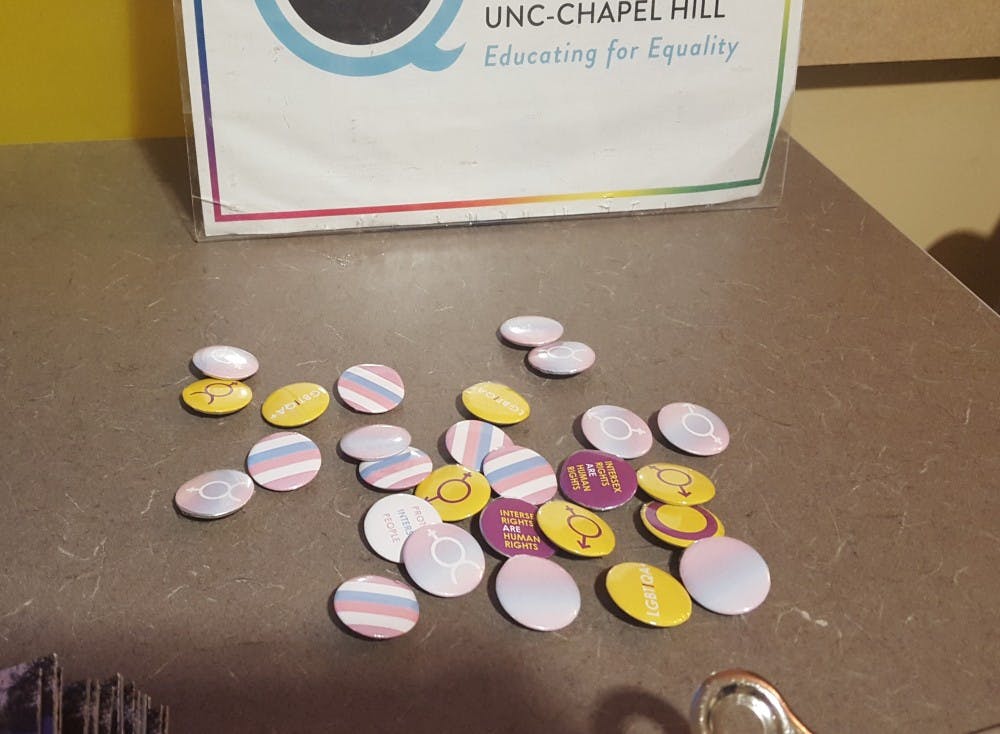Being intersex isn’t the problem, but being persecuted is.
That was the sentiment expressed by the intersex individuals in the documentary “Intersexion,” which the UNC LGBTQ Center screened on Nov. 27.
The documentary, which was directed by Grant Lahood and presented by Mani Bruce Mitchell, was followed by a discussion session led by assistant director of the LGBTQ Center, April Callis.
The documentary screening was part of the UNC LGBTQ Center’s recognition of Intersex Awareness Day. Because Homecoming Week fell on Oct. 26, the internationally recognized Intersex Awareness Day, the UNC LGBTQ Center honored Intersex Awareness Day on Nov. 27.
Mariel Eaves, administrative support specialist at the UNC LGBTQ center, said the choice to honor Intersex Awareness Day on a different date was well-received and allowed intersex awareness to get the attention it deserves.
“The decision was made because there were no spots in the Pit available during Homecoming Week and we wanted to be as visible with intersex awareness as we were with other identities this year,” Eaves said.
So far this semester, the UNC LGBTQ Center has held events in the Pit for Bi Visibility Day, National Coming Out Day, Asexual Awareness Week and Transgender Day of Remembrance and Resilience.
For Intersex Awareness Day, representatives from the LGBTQ Center set up a table draped with a rainbow flag in the Pit where they advertised the documentary event as well as passing out intersex pride buttons. According to Callis, 66 people visited the table to learn about intersex human rights.
“We want to make sure that we are very visible for this identity that sometimes gets overlooked,” Callis said.



